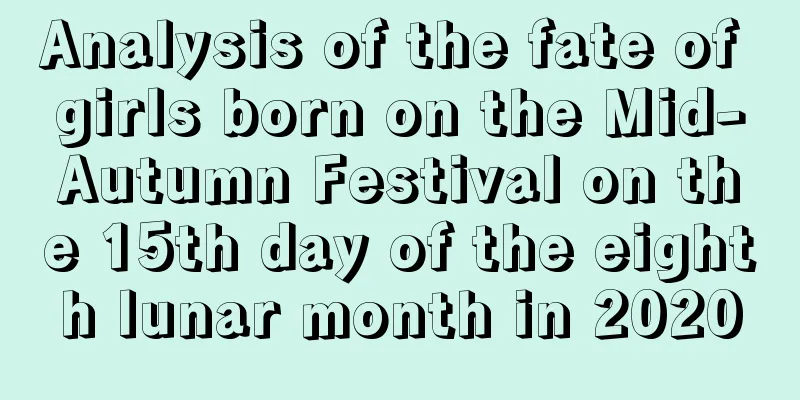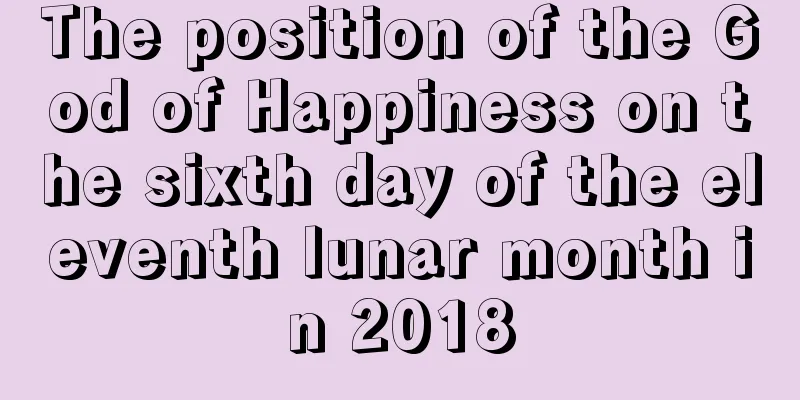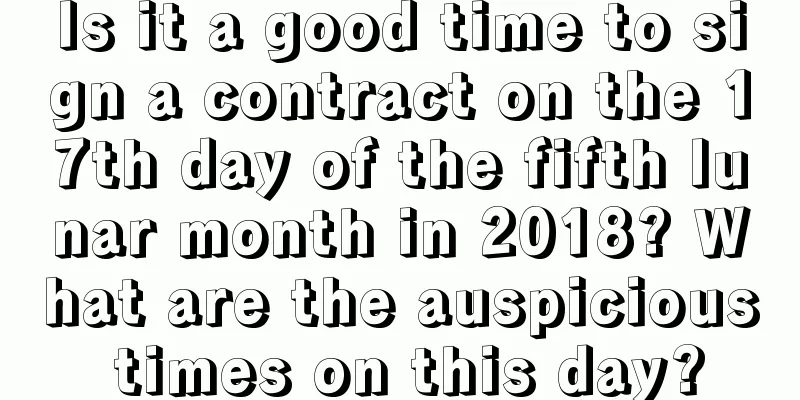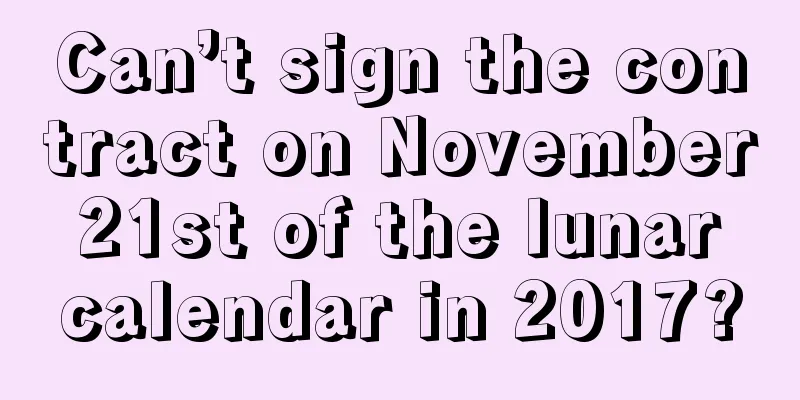Is it okay to fly Kongming lanterns during the Xiayuan Festival? What other traditional customs are there during the Xiayuan Festival?
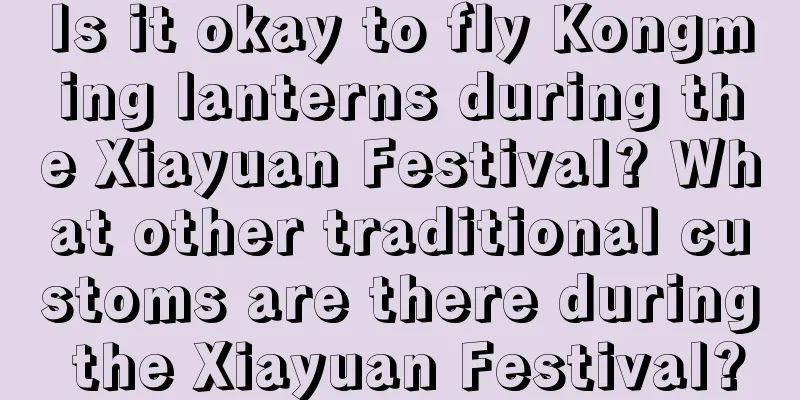
Introduction: The Xiayuan Festival is an important traditional festival. So is it okay to release Kongming lanterns during the Xiayuan Festival? What other traditional customs are there during the Xiayuan Festival? The tenth month of the lunar calendar is the Pig Month, which has other names such as Jianhai, Mengdong, Yingzhong, Haiyue, Liangyue and Kunyue. Let’s follow Shuimoxiansheng.com to take a look at the relevant content of the tenth month of the lunar calendar in 2018.Is it okay to fly Kongming lanterns during the Lower Yuan Festival?You can fly Kongming lanterns during the Lower Yuan Festival!The Kongming lantern is also called the sky lantern, commonly known as the wishing lantern or the prayer lantern. It is an ancient Chinese handicraft that means praying for blessings and ensuring safety! The Lower Yuan Festival is meant to pray for blessings, ward off disasters, relieve suffering and apologize for sins, so you can release Kongming lanterns on that day. But be careful to prevent fire. What other traditional customs are there during the Lower Yuan Festival?Xiayuan Festival customs: offering sacrifices to ancestorsAs time goes by, the Lower Yuan Festival has gradually evolved into a traditional festival for the people to prepare rich dishes, offer sacrifices to the souls of their ancestors, and pray for blessings and good fortune. Ancestor worship is a reflection of ancestor belief. Human beings’ belief in their ancestors is human beings’ worship of themselves. Believing in ancestors, worshipping them, and showing respect to their souls are all for the purpose of praying for their blessings on future generations. The emergence of ancestor worship is related to the ancient concept of soul belief. Primitive people believed that all things have souls and that the human soul exists independently of the body. Since humans in primitive beliefs viewed themselves as a dual structure, namely a physical structure and a spiritual structure, they believed that the body could die but the soul lived forever. This is the concept of "immortality of the soul." It is this view of human soul that has led to the prevalence of the custom of ancestor worship. In order to pray that the souls of the ancestors will protect their descendants and save them from disasters and misfortunes, people hold sacrificial activities for their ancestors. Generally speaking, the method of worshipping ancestors is ancestral temples. The state has ancestral temples, and the common people have ancestral halls and family temples. Through sacrifices, people pray for blessings, fortune and luck. Different parts of the country have different customs in offering sacrifices to ancestors and seeking blessings. Among the people in Zou County, Shandong Province, a special banquet is held to offer sacrifices to ancestors on the day of the Lower Yuan Festival. People in Ningyuan County, Hunan Province, often hold festivals to welcome gods around the Lower Yuan Festival. Xiayuan Festival customs: praying to the gods Judging from the evolution of the content and objects of sacrifice, the Lower Yuan Festival has incorporated many sacrificial customs in agricultural production, making it an agricultural festival for worshiping gods, praying against disasters and praying for a good harvest. In Putian, Fujian Province, every household will offer sacrifices to the water god in the fields in the evening of the Lower Yuan Festival, praying for moisture for the crops in the dry winter and for their safety during the winter. During the sacrifice, vegetarian food is placed on the table and incense sticks are scattered on the ridges of the fields to show piety. Xiayuan Festival customs: fasting and offering sacrifices The Lower Yuan Day is also one of the dates for fasting as stipulated in Taoist fasting rules. Taoism believes that all things that require the use of divine power, such as praying for blessings, warding off disasters, relieving suffering, apologizing, seeking immortality, prolonging life, and saving the dead, etc., all require fasting. The methods of practicing fasting can be roughly divided into two categories: one category has roughly three types, and the first is setting up fasting offerings. That is to say, an altar is set up to offer food and pray to the gods in order to pray for blessings and avoid disasters. There were nine ways of setting up altars in ancient times: the top three altars were for the state, the middle three altars were for ministers, and the bottom three altars were for the common people. In later generations, the establishment of altars gradually declined. Offering vegetarian food can “accumulate virtue and heal the disease”; second, fasting. The ancients would bathe and change clothes before offering sacrifices, and not drink alcohol or eat meat, in order to keep their external organs clean and their bodies and minds pure, to show their sincerity and respect. This was called fasting. Fasting can “harmonize the spirits and prolong life”; the Three Heart Fasts. Mental fasting can make the mind peaceful and tranquil. The other category has roughly nine: one is coarse food, two is vegetable food, three is diet, four is essence, five is teeth, six is light, seven is air, eight is original energy, and nine is fetal food. In addition, all rituals such as chanting, repentance, and sacrifices are also included in the scope of fasting. Xiayuan Festival customs: Putian folk On the 15th day of the tenth lunar month, many families in Putian would set up tables for food offerings, burn incense and offer silver tributes in the open space in front of their houses, and let their children use burning incense sticks to evenly insert them into small squares, which is called "Butian". This custom is said to be a sacrifice to the "dead souls", commonly known as "Pu Gu", which means to save the lonely souls. The fifteenth day of the tenth month of the lunar calendar is a traditional Chinese folk festival - Xiayuan Festival, also known as "Xiayuan Day". The origin of the Lower Yuan Festival is related to Taoism. Taoism has three officials: the Heavenly Official, the Earthly Official, and the Water Official. It is said that the Heavenly Official bestows blessings, the Earthly Official forgives sins, and the Water Official relieves disasters. The birthdays of the Three Officials are the 15th day of the first lunar month, the 15th day of the seventh lunar month, and the 15th day of the tenth lunar month. These three days are called "Shangyuan Festival", "Zhongyuan Festival" and "Xiayuan Festival". The Lower Yuan Festival is the day when the Water God relieves people from disasters and the Emperor Yanggu relieves people from disasters. Every time the Lower Yuan Festival comes, the Water God descends to the mortal world to inspect the good and evil in the world and relieve people of disasters. Legend has it that on this day, the Water Official would record the findings and report to the Heavenly Court to help people resolve their problems. |
<<: What can’t we do during the Lower Yuan Festival in 2018? When is the Lower Yuan Festival?
>>: Query the position of the God of Happiness on the 15th day of the 10th lunar month in 2018
Recommend
Is it a good time to get a haircut on October 23rd of the lunar calendar in 2020?
Is it a good time to get a haircut on October 23rd...
How is the fate of a tiger baby born in May of the lunar calendar in 2022? Complete destiny analysis!
2022 is the Year of the Tiger. The fate of babies ...
Where is the God of Wealth on September 27th of the lunar calendar in 2018?
Want to know more about the days in the ninth mon...
Is it a good day to start renovation on the second day of the fifth lunar month in 2020?
Chinese people have always paid attention to the r...
What is the meaning of the solar term Rain Water? Is Rain Water Day a good day?
Rain Water, Grain Rain, Grain Full, Light Snow, He...
Guess riddles on the 15th day of the first lunar month for the Lantern Festival - word, idiom, animal riddles + answers!
The Lantern Festival has the customs of appreciati...
Can I sign a contract and open a position on Wednesday, February 25, 2020? Is it a good or bad omen?
Opening a position is part of the contract, and an...
Where is the God of Wealth on the 18th day of the eighth lunar month in 2018?
It is the eighth month of the lunar calendar, the...
The start and end time of Cold Dew in 2020, and the management of agricultural vegetables during Cold Dew
Introduction: The start and end time of Cold Dew a...
Is it auspicious to hold a funeral on the seventh day of the fifth lunar month in 2020? What should we pay attention to during the funeral?
Introduction: In our country's traditional cul...
When is the Beginning of Autumn in August 2020? Is it good or bad to get married on the Beginning of Autumn?
Introduction: The Beginning of Autumn is one of th...
Is the fate of a girl born on August 16, the day after Mid-Autumn Festival in 2019 good?
People born on different days have different desti...
Is it a good idea to move on the Lantern Festival? Can I move on the fifteenth day of the first lunar month in 2018?
The Spring Festival does not just refer to the fir...
Is May 21st of the lunar calendar 2018 an auspicious day?
Introduction: In traditional Chinese culture, ausp...
Is it not appropriate to hold a funeral on the sixth day of the fourth lunar month in 2020? Analysis of the taboos about funerals
Introduction: Funerals usually require an auspicio...




